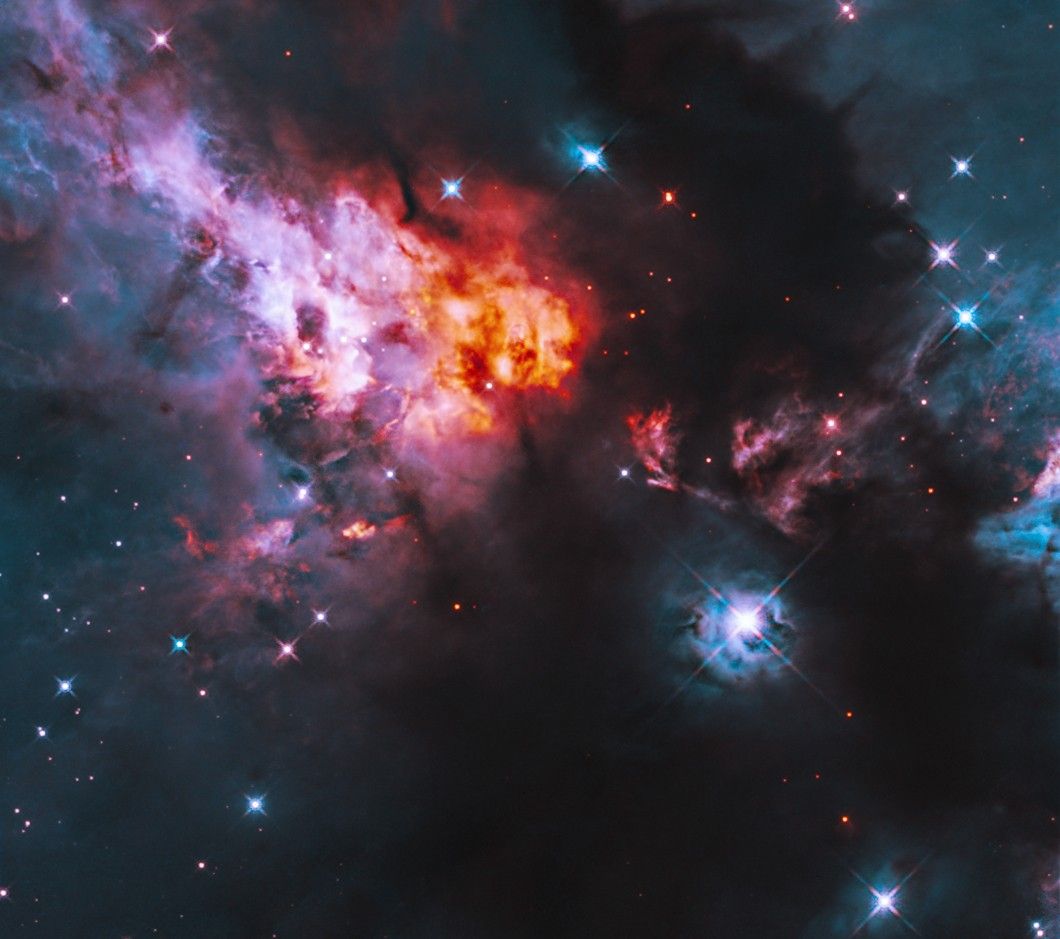2 min read
Hubble Captures a Galaxy Face-On

This glittering image from the NASA/ESA Hubble Space Telescope shows the spiral galaxy IC 5332. The galaxy lies about 30 million light-years away in the constellation Sculptor and has an almost face-on orientation to Earth. To understand the term ‘face-on,’ it is helpful to visualize a spiral galaxy as an extremely large disk. If the galaxy’s orientation makes it appear circular and disk-shaped from our perspective on Earth, then we say that it is ‘face-on.’ In contrast, if the galaxy’s orientation is such that it appears squashed and oval-shaped, then we say that it is ‘edge-on.’ The key thing is that the same galaxy would look extremely different from our perspective depending on whether it was face-on or edge-on as seen from Earth.
IC 5332 is an SABc-type galaxy in the De Vaucouleurs system of galaxy classification. The ‘S’ identifies it as a spiral galaxy, which it clearly is, given its well-defined arms of bright stars and darker dust that curl outwards from the galaxy’s dense and bright core. The ‘AB’ designation is a little more complex. It means that the galaxy is weakly barred, which refers to the shape of the galaxy’s center. The majority of spiral galaxies do not spiral out from a single point, but rather from an elongated bar-type structure. SAB galaxies – which are also known as intermediate spiral galaxies – do not have a clear bar-shape at their core, but also do not spiral out from a single point, instead falling somewhere in between. The lowercase ‘c’ describes how tightly wound the spiral arms are: ‘a’ would indicate very tightly wound, and ‘d’ very loosely wound. Thus, IC 5332 is an intermediate spiral galaxy on many fronts: weakly barred, with quite loosely wound arms, and almost completely face-on!
Text credit: European Space Agency
Media Contact:
Claire Andreoli
NASA’s Goddard Space Flight Center, Greenbelt, MD
claire.andreoli@nasa.gov
Details
Discover More Topics From NASA
from NASA https://ift.tt/BeibWzO






No comments:
Post a Comment